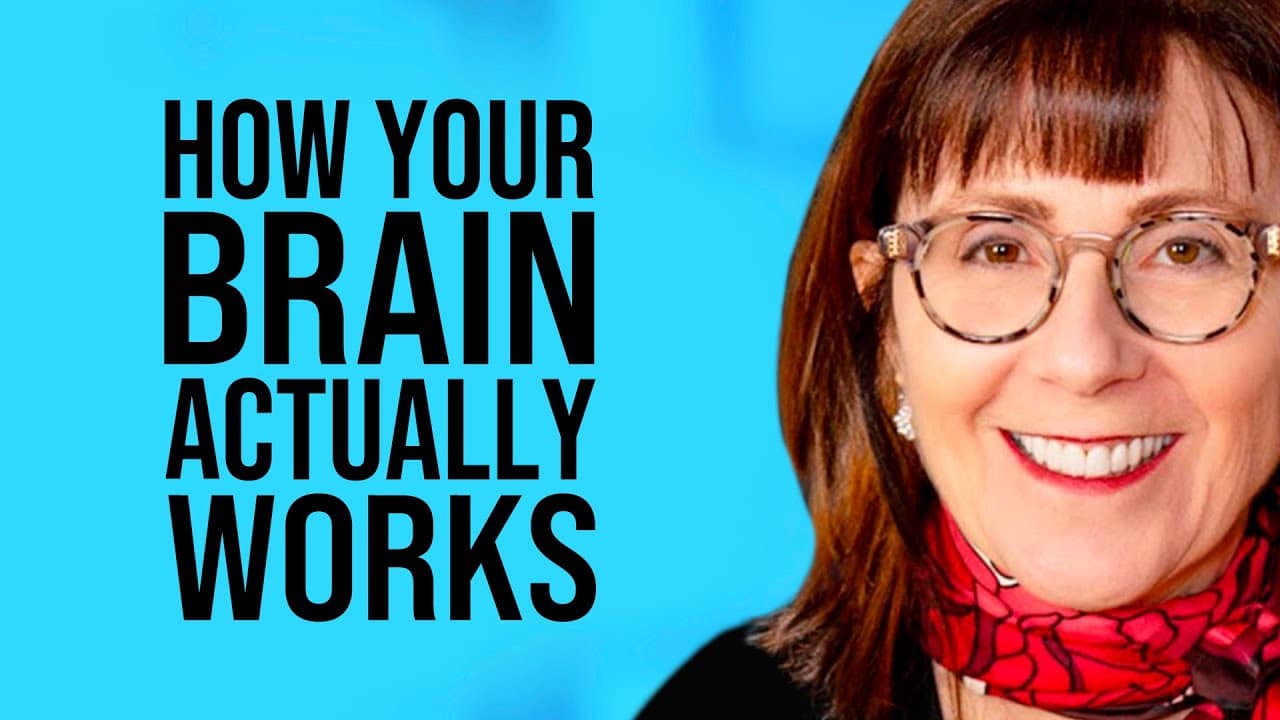*****
Summary of Transcript:
In this episode of “Conversations with Tom,” Tom Bilyeu speaks with neuroscientist Lisa Feldman Barrett about the difference between emotions and affect. Barrett explains that while all humans have affected – general feelings of pleasantness or unpleasantness – not all cultures distinguish between effect and emotions. She also notes that the brain’s most important job is to regulate the body’s systems and affect a barometer of how well that regulation is occurring. However, the effect does not provide specific information about what to do in a situation, so the brain must guess the causes based on context.
*****
Summary of Description:
In this episode of Conversations with Tom, neuroscientist, psychologist, and author Dr. Lisa Feldman Barrett discusses how our past experiences greatly affect our future responses and how our brain formulates a ‘best guess’ based on this data. They delve into how the brain develops during childhood, how culture is built into our brains, the difference between emotion and affect, how concepts are formed and used within our brains, our body budgets, and the importance of empathy and compassion in human interactions. Barrett also discusses the power of experiences to change our brain’s function and how life events can get stuck in our minds, hindering our growth. They emphasize the importance of understanding how past experiences impact our responses and how empathy and compassion can help us understand and balance each other’s body budgets.
*****
How Your Brain Develops Responses to the World: Insights from Neuroscientist Lisa Feldman Barrett
Neuroscientist and author Lisa Feldman Barrett recently appeared on Conversations with Tom to discuss how our brains generate responses based on the information they gather from the world around us. Tom and Lisa touched on various topics, including the differences between emotions and affects, how our childhood experiences shape our responses, the impact of culture on our brains, and why it’s crucial to approach others with empathy and compassion.
Emotion vs. Affect
Lisa Barrett explained that emotions and affect are separate things, with effects being the earliest responses our brains form to sensory input. She suggested that emotions come later after our brains interpret and analyze the meaning of the effects. Lisa also pointed out that what we think of as “emotions” are just words used to describe our effects.
Brain Guesses
Lisa asserted that our brains use the information they gather to predict how to feel and what to do. She called these predictions “brain guesses” and underlined that these guesses are based on our previous experiences. Lisa also emphasized that while we don’t have control over the initial guesses made by our brains, we can control our responses to them.
Development and Culture
During the podcast, Lisa touched on how our brains are wired during our early life experiences. She explained that as infants, our brains develop based on our experiences, and these early experiences stay with us for life. Lisa also discussed how our culture and society become ingrained in our brains and how these surroundings influence how we interpret information. She pointed out that culture is always a factor when our brains generate a guess or prediction.
Concepts and Change
Lisa expanded on how our brains form, categorize, and use concepts to interpret the world. She explained that our experiences could change the function of our brains and that every single experience affects our future responses. She also addressed why some people get stuck on their past experiences and how occasions can change our brain’s function in the future.
Body Budgets
Lisa also introduced the concept of “body budgets” and how our brains try to balance these budgets. She explained that each individual has a unique budget and that various factors, such as sensory experiences, emotions, and social interactions, impact our body budgets. While modern technology and the digital world can drain our body budgets, Lisa argued that we could also affect others’ body budgets in positive ways.
Approaching Others with Empathy and Compassion
Lisa concluded the podcast by emphasizing the importance of approaching others with empathy and compassion. She suggested that kindness can be practiced and learned and that it’s important to educate ourselves about the impact of our actions on others. By doing so, Lisa suggested we can make positive changes in the world.
The Takeaway
Lisa Feldman Barrett provided many thought-provoking insights on how our brains develop responses to the world around us, why culture plays such an important role in shaping our minds, and how we can better understand and interact with others. The podcast provides a great opportunity for those interested in neuroscience, psychology, and how our mind functions to learn more about how our responses can shape our world.
*****
Source Description
The experiences you carry with you from your past greatly affect how you respond in the future. We are constantly feeding our brain data based on our world and circumstances. Based on these experiences, our brain can formulate a ‘best guess’ and, thus, we form our responses. But are we really in control of our responses? Does our brain truly know anything, or is everything our brain concludes merely just a ‘best guess’ and nothing more?
On this episode of Conversations with Tom, Tom joins neuroscientist, psychologist, and author Dr. Lisa Feldman Barrett to discuss such matters and more as they explore how the human brain develops its responses to the world and why it’s important for us to not only understand it for our own sake but for the benefit of others as well. They discuss the difference between emotion and affect, how our brains develop during childhood, how culture is built, how concepts are formed and used within our brains, what our body budgets are, and why we should always approach each other with empathy and compassion first.
Order Lisa’s Book, ‘Seven and a Half Lessons About The Brain’: lisafeldmanbarrett.com/books/seven-and-a-half-lessons-about-the-brain/
SHOW NOTES:
Intro | Tom introduces today’s guest, neuroscientist and author Lisa Feldman Barrett. [0:03]
Emotions | Lisa discusses the key differences between experiencing emotion and affect. [0:39]
Brain Guesses | Lisa breaks down how our brains process data to inform us how to feel. [9:07]
Sense Data | Lisa shares how our brain processes our senses and the fidelity of each. [11:04]
Semantic | Lisa reveals why the notion that we don’t experience emotion isn’t semantic. [19:59]
Development | Lisa discusses a baby’s brain’s early development and wiring. [25:34]
Culture | Lisa discusses how our cultures are developed at an early age. [31:04]
Usability | Lisa breaks down the culture and how they serve us in the pursuit of our goals. [37:31]
Concepts | Lisa discusses how they work in our mind’s eye. [42:21]
Change | Lisa shares how experiences have the power to change our brain’s function. [47:51]
Stuck in the Past | Lisa discusses why people are stuck on past experiences. [54:30]
Body Budget | Lisa shares your body budget and how you balance it. [57:19]
Deficits | Lisa discusses the traits of today’s world that drain our body budgets. [1:03:53]
Give and Take | Lisa shares how we influence and balance each other’s body budgets. [1:11:46]
Responsibility | Lisa shares why we need to educate ourselves on body budgets. [1:16:52]
Little Things | Lisa shares what we should be mindful of for a more fulfilling life. [1:23:23]
Different Paths | Lisa discusses the benefits and disadvantages of a zen approach. [1:25:19]
Debate | Lisa discusses our current political system and how we speak to each other. [1:29:20]
Goals | Lisa discusses how we prioritize in pursuit of achieving our goals. [1:37:58]
Empathy | Lisa shares the practice of approaching people with compassion. [1:42:36]
Closing | Tom shares his final thoughts and the power of Lisa’s teachings. [1:49:10]
QUOTES:
“…there is no “just the cultural interpretation.” When your brain predicts what something means, that is a very sensory motor prediction; no culture is laid on top.” [32:11]
“When your brain is making a prediction, it’s using regularities from experience in your past. And if you live in a particular culture, your regulators will be different than somebody in a different culture.” [46:14]
“The important thing to understand is that every experience you could, even a little bit, change your brain’s function in the future.” [53:35]
FOLLOW LISA:
Website: lisafeldmanbarrett.com
Twitter: twitter.com/LFeldmanBarrett



Comments are closed